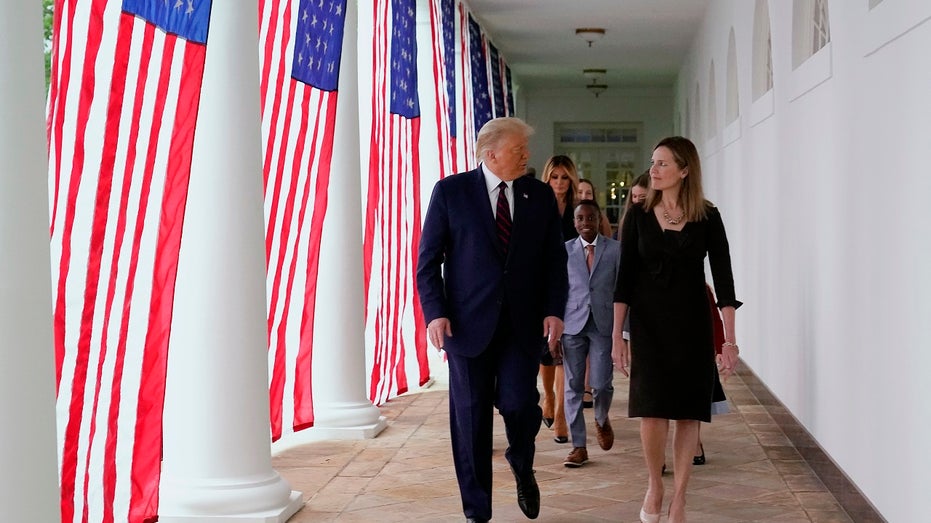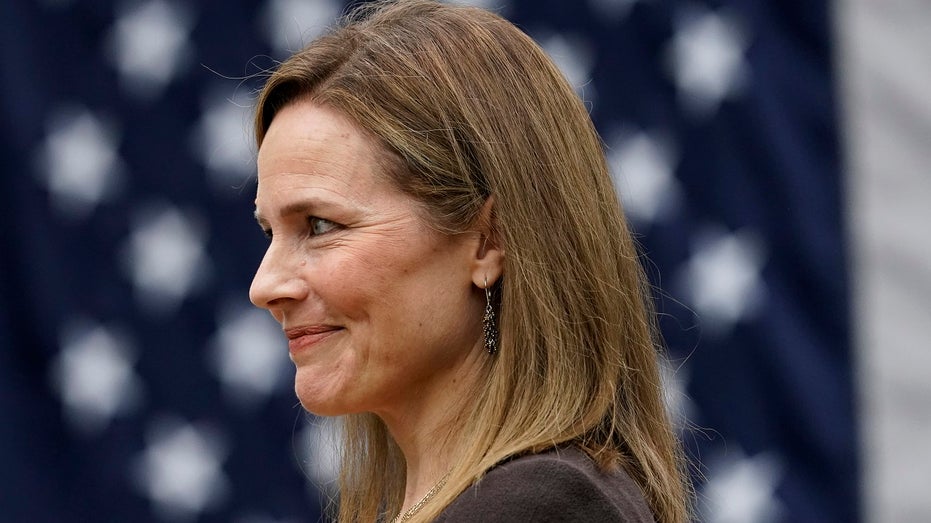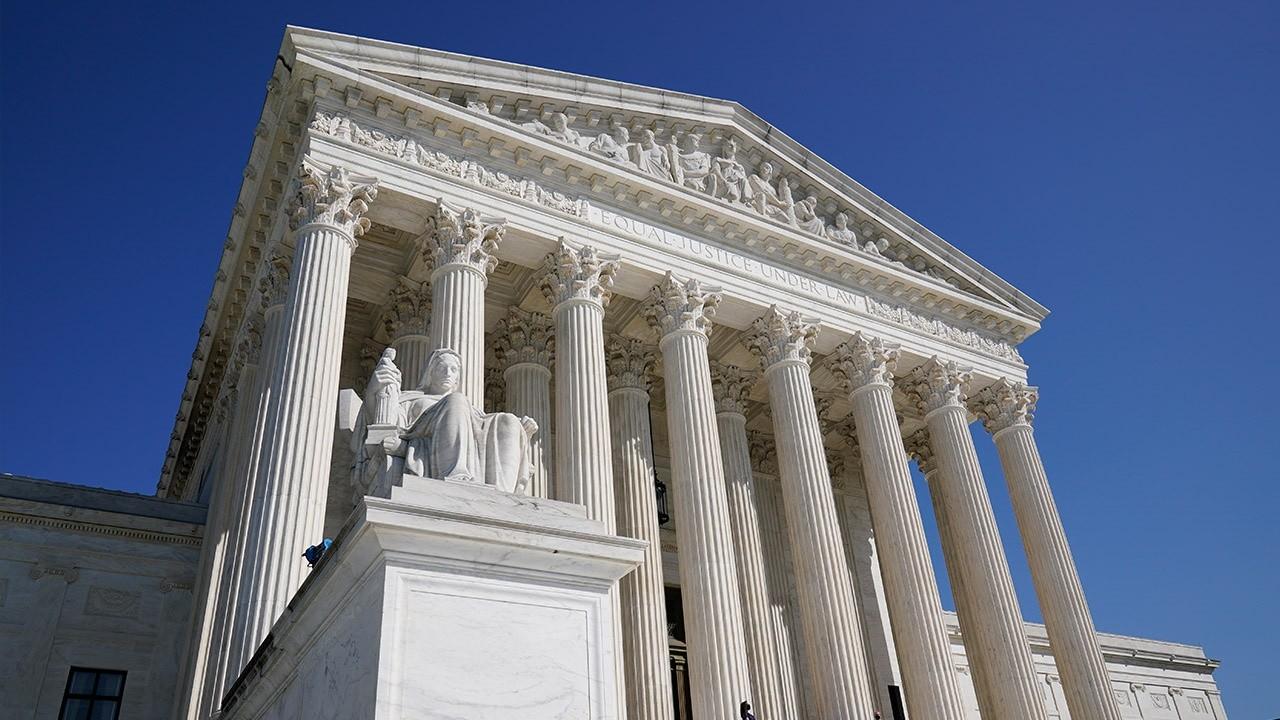Trump nominates Amy Coney Barrett to Supreme Court
Barrett is a former clerk for the late Justice Antonin Scalia
President Trump is nominating Amy Coney Barrett to the Supreme Court to fill the seat left vacant after the death of Justice Ruth Bader Ginsburg.
“Today it is my honor to nominate one of our nation's most brilliant and gifted legal minds to the Supreme Court," Trump said in the Rose Garden. "She is a woman of unparalleled achievement, towering intellect, sterling credentials and unyielding loyalty to the Constitution -- Judge Amy Coney Barrett.”
If confirmed, Barrett, who currently serves as a judge on the 7th U.S. Circuit Court of Appeals, would replace Ginsburg who died on Sept. 18 after battling cancer.
Barrett has long been considered a front-runner for the seat after she was closely examined to potentially replace former Justice Anthony Kennedy on the high court. Trump eventually selected Justice Brett Kavanaugh for the slot; news outlets reported that Trump at the time said he was "saving her for Ginsburg."

President Donald Trump walks along the Colonnade with Judge Amy Coney Barrett after a news conference to announce Barrett as his nominee to the Supreme Court, in the Rose Garden at the White House, Saturday, Sept. 26, 2020, in Washington. (AP Photo/A
The appeals court judge is a former Notre Dame professor and a devout Catholic, a fact that was controversial at her 2017 confirmation hearing to her current seat on the 7th Circuit.
CLICK HERE TO LEARN MORE ABOUT JUDGE AMY CONEY BARRETT
"The dogma lives loudly within you, and that's of concern," Senate Judiciary Committee Ranking Member Dianne Feinstein, D-Calif., told Barrett. She was eventually confirmed 55-43.
Barrett, a former clerk for the late Justice Antonin Scalia, is 48 years old.
She is a favorite of religious conservatives, an important well of support for Trump, and many believe she would overturn Roe v. Wade if given the opportunity.
Legal experts have predicted that the addition of another conservative judge to the Supreme Court will swing more decisions to favor big businesses.
SUPREME COURT CLERKS SEE $400G BONUSES FROM ELITE LAW FIRMS
Deepak Gupta, an appellate lawyer and founder of Gupta Wessler, told the Washington Post that cases involving corporations, private arbitration and the ability for consumers to hold businesses accountable come down to a 5-4 vote.
“With a 5-4 court, where there’s more balance, a lot of issues are just one vote away,” Gupta told the Post. “That becomes less true with a 6-3 court.”
For example, an antitrust class action case against Apple last year and a case involving leadership of the Consumer Financial Protection Bureau this summer came down to 5-4 decisions.

Judge Amy Coney Barrett listens as President Donald Trump announces Barrett as his nominee to the Supreme Court, in the Rose Garden at the White House, Saturday, Sept. 26, 2020, in Washington. (AP Photo/Alex Brandon)
And this comes when the Supreme Court is already about as friendly to business as it has ever been, according to Adam Feldman of the Empirical SCOTUS blog.
GET FOX BUSINESS ON THE GO BY CLICKING HERE
Ginsberg was the justice with the lowest percentage of “favorable” votes for businesses with about 50%, according to Feldman’s analysis. In 2017, even before Kavanaugh, a conservative, joined the court, it ruled in favor of pro-business interests more than 81% of the time.
“The current Supreme Court is unabashedly friendly towards big business,” Feldman wrote.
The long-term effect could be fewer opportunities for consumers to bring cases against corporations, according to legal experts. Allison Zieve, the director of Public Citizen’s litigation group, told the Post that there have already been “significant limitations imposed” against the ability to sue big businesses.
“The main thing corporations seek from the Supreme Court is limitations on the ability to sue them,” Zieve told the Post.




















